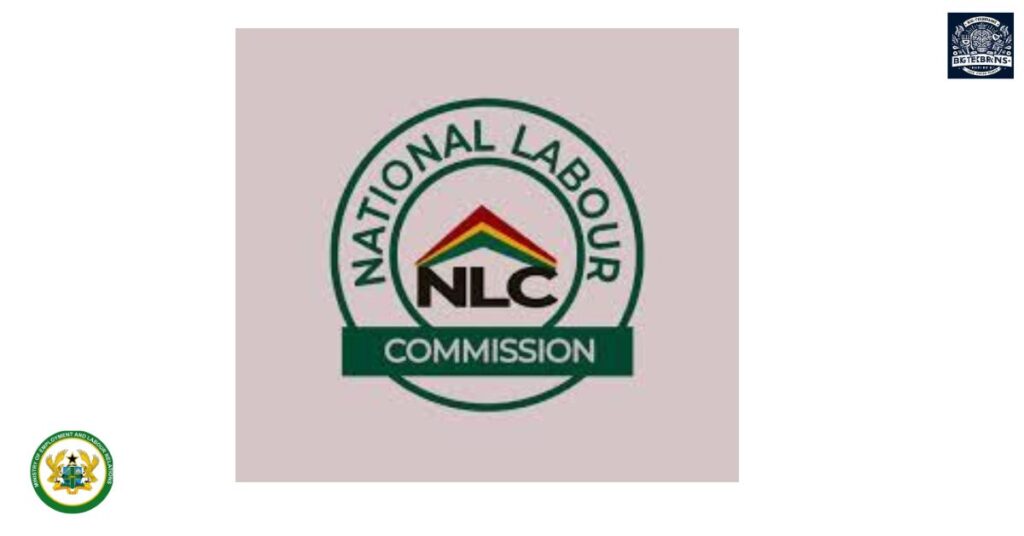Excerpt
The National Labour Commission (NLC) of Ghana plays a pivotal role in fostering harmonious industrial relations and ensuring the effective resolution of labor disputes. This article delves into the historical background, constitutional mandate, organizational structure, leadership, recruitment processes, constitutional reforms, collaborative units, and notable achievements of the NLC.
Historical Background
Established under Part XVIII of the Labour Act, 2003 (Act 651), the NLC serves as an independent arbiter in industrial dispute resolution in Ghana. Act 651, enacted in 2003, is the primary legislation governing employment relationships in the country. Prior to this, labor relations were regulated by the Industrial Relations Act of 1960 (Act 299), which vested the Labour Department under the Ministry of Labour Affairs with the responsibility of managing and settling industrial disputes. The introduction of Act 651 marked a significant shift towards a more structured and independent approach to labor dispute resolution.
Constitutional Mandate
The NLC’s functions, as outlined in Section 138 of Act 651, include:
- Facilitating the settlement of industrial disputes.
- Investigating labor-related complaints, particularly unfair labor practices, and taking necessary steps to prevent disputes.
- Maintaining a database of qualified mediators and arbitrators.
- Promoting effective labor cooperation between labor and management.
- Performing any other functions conferred under the Act.
Organizational Structure
The NLC comprises seven members, as specified in Section 136 of Act 651:
- Two representatives of the Government.
- Two representatives from Employers’ Organizations.
- Two representatives from Organized Labour.
- A chairman nominated jointly by Employers’ Organizations and Organized Labour.
This tripartite composition ensures balanced representation and decision-making within the Commission.
Leadership and Ranks
The leadership of the NLC includes the Chairman, who presides over meetings and represents the Commission in official capacities. The Executive Secretary manages the day-to-day administrative functions of the Commission. Other roles within the Commission are structured to support its mandate effectively, though specific titles and ranks are defined internally.
Mode of Appointment and Recruitment
Members of the NLC are appointed based on nominations from their respective groups—Government, Employers’ Organizations, and Organized Labour. The Chairman is jointly nominated by Employers’ Organizations and Organized Labour. This collaborative approach ensures that all key stakeholders in Ghana’s labor relations landscape are adequately represented.
Collaborative Units
The NLC collaborates with various entities to fulfill its mandate, including:
- The Ministry of Employment and Labour Relations.
- Employers’ Organizations.
- Organized Labour groups.
Additionally, the Commission maintains a database of qualified mediators and arbitrators to assist in dispute resolution processes.
Constitutional Reforms
In recent years, there have been calls for amendments to portions of the Labour Act, 2003 (Act 651) to enhance the effectiveness of the NLC. Proposed reforms focus on:
- Enforcement of NLC decisions.
- Reviewing the membership structure.
- Addressing political appointments.
- Extending the tenure of commissioners.
- Improving remuneration for commission members.
These reforms aim to strengthen the Commission’s capacity to manage labor disputes and promote industrial harmony.
Achievements
Between 2017 and 2023, the NLC recorded a total of 4,207 cases, successfully settling 2,678 of them, representing a 64% resolution rate. This achievement underscores the Commission’s commitment to maintaining industrial harmony in Ghana.
References
- https://melr.gov.gh/4/16/12/national-labour-commission-%28nlc%29
- https://nlcghana.com/about-nlc/
- https://www.ghanaweb.com/GhanaHomePage/business/Amend-Labour-Act-to-make-National-Labour-Commission-effective-GFL-1114360
- https://gna.org.gh/2024/05/ghana-steps-up-efforts-to-pass-new-labour-law/
- https://www.businessghana.com/site/news/general/306141/Ghana-steps-up-efforts-to-pass-new-Labour-law
- https://www.theghanareport.com/ghana-steps-up-efforts-to-pass-new-labour-law/
- https://coverghana.com.gh/what-is-national-labour-commission/
- https://nlcghana.com/characteristics-of-the-national-labour-commission/
- https://www.melr.gov.gh/2/files/publications/3/3/13/5/1/2/7/files/counters/5/4/2/1/4/16/12/national-labour-commission-%28nlc%29
- https://ndpc.gov.gh/media/MIinistry_of_Employment_and_Labour_Relations_APR_2017.pdf
- https://www.labouringhana.com/

